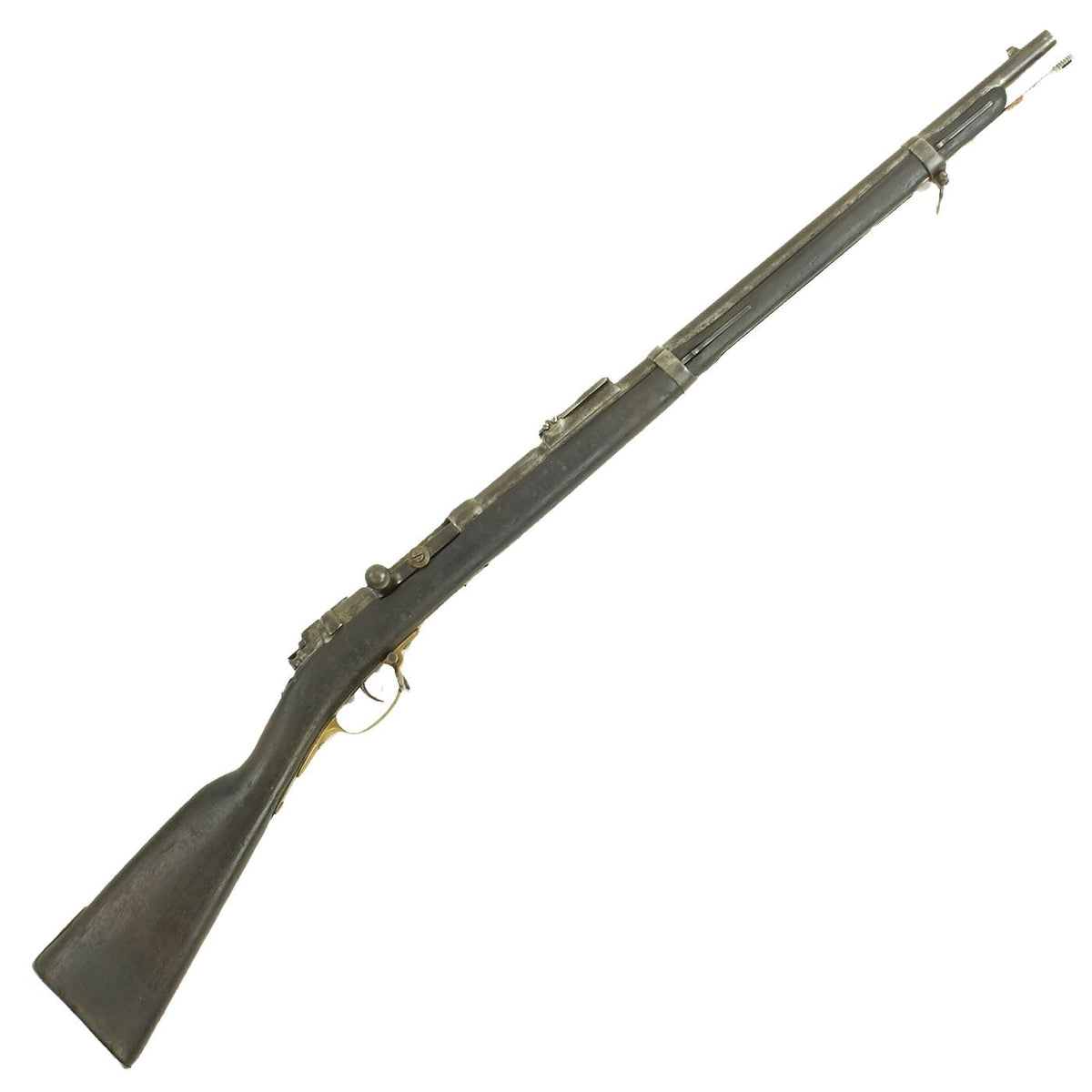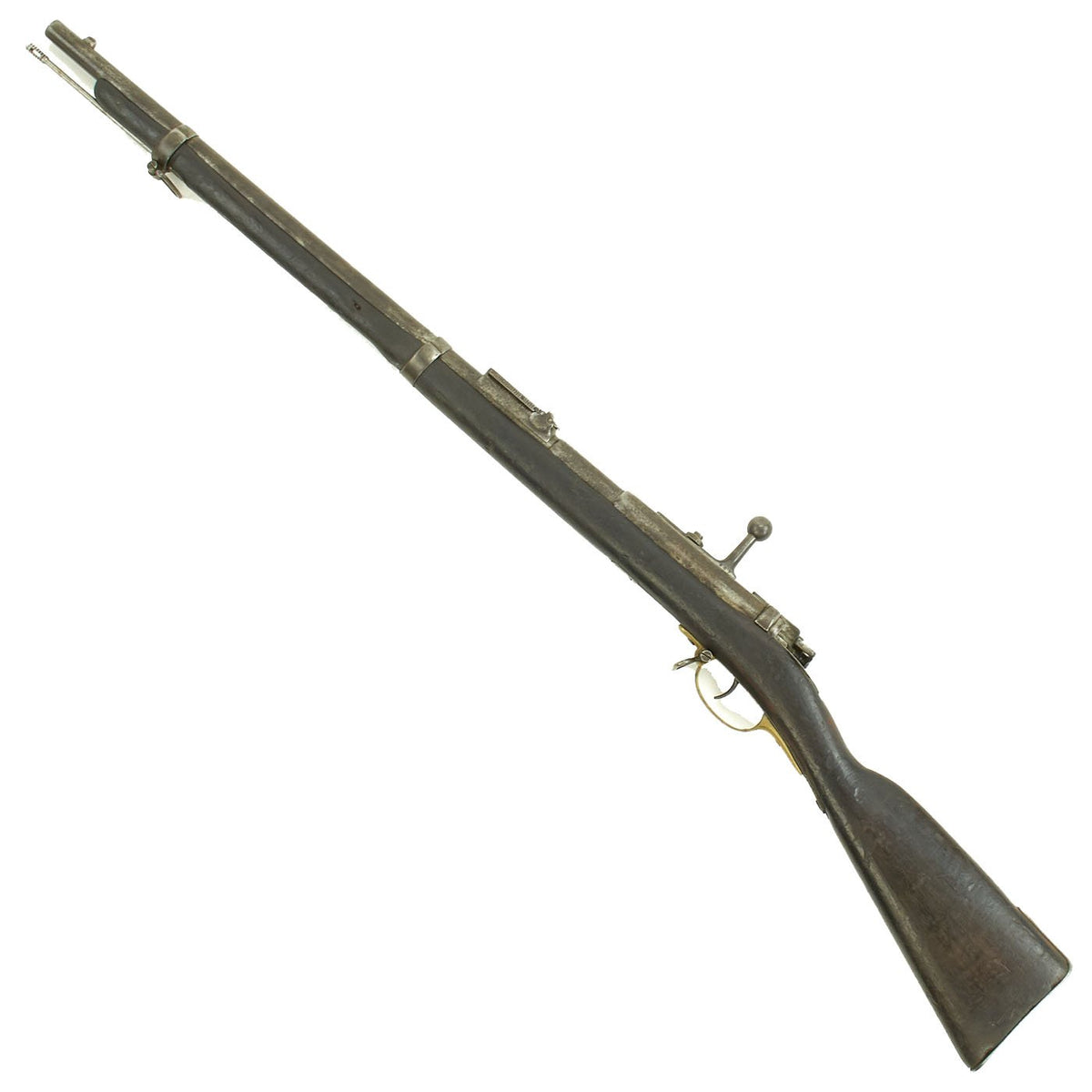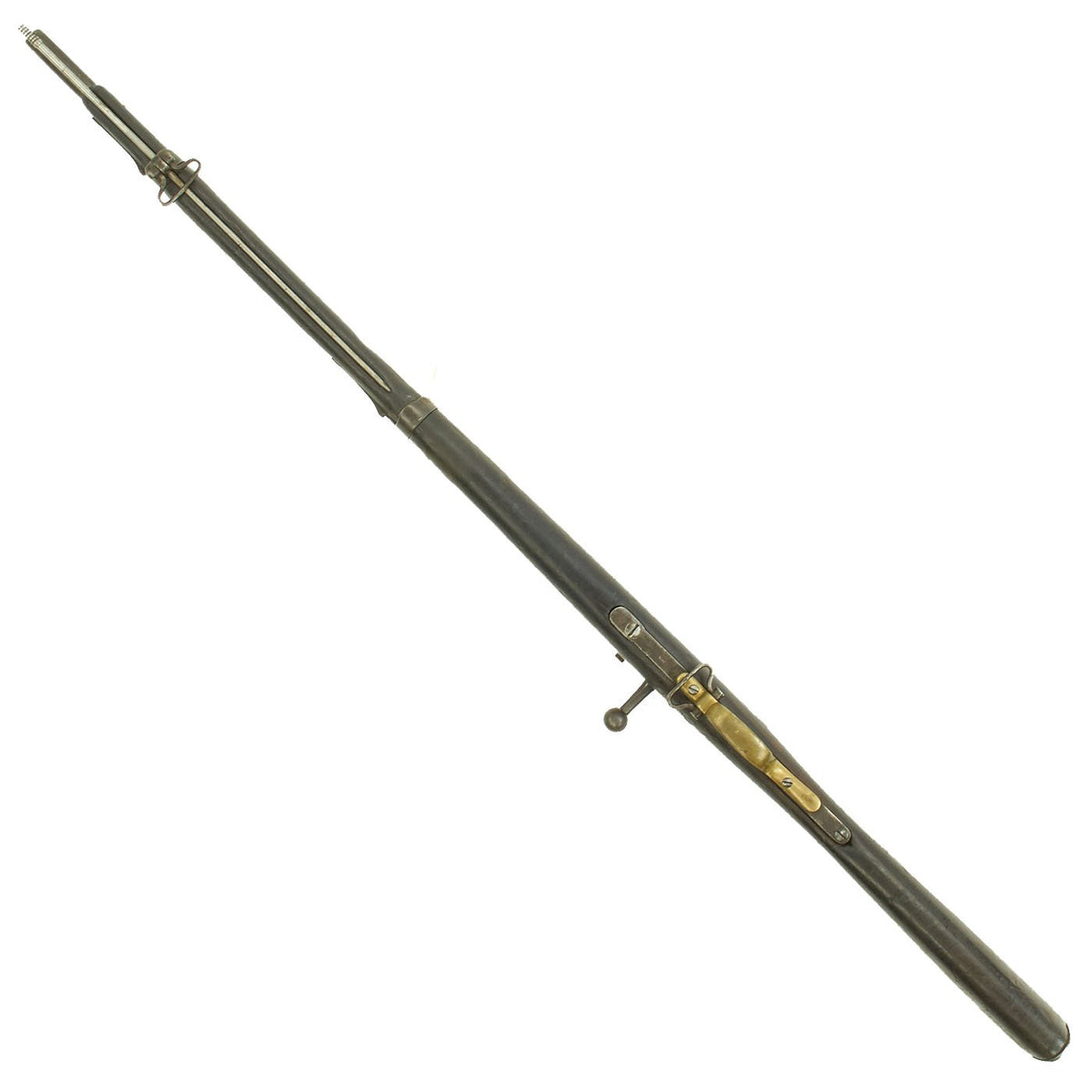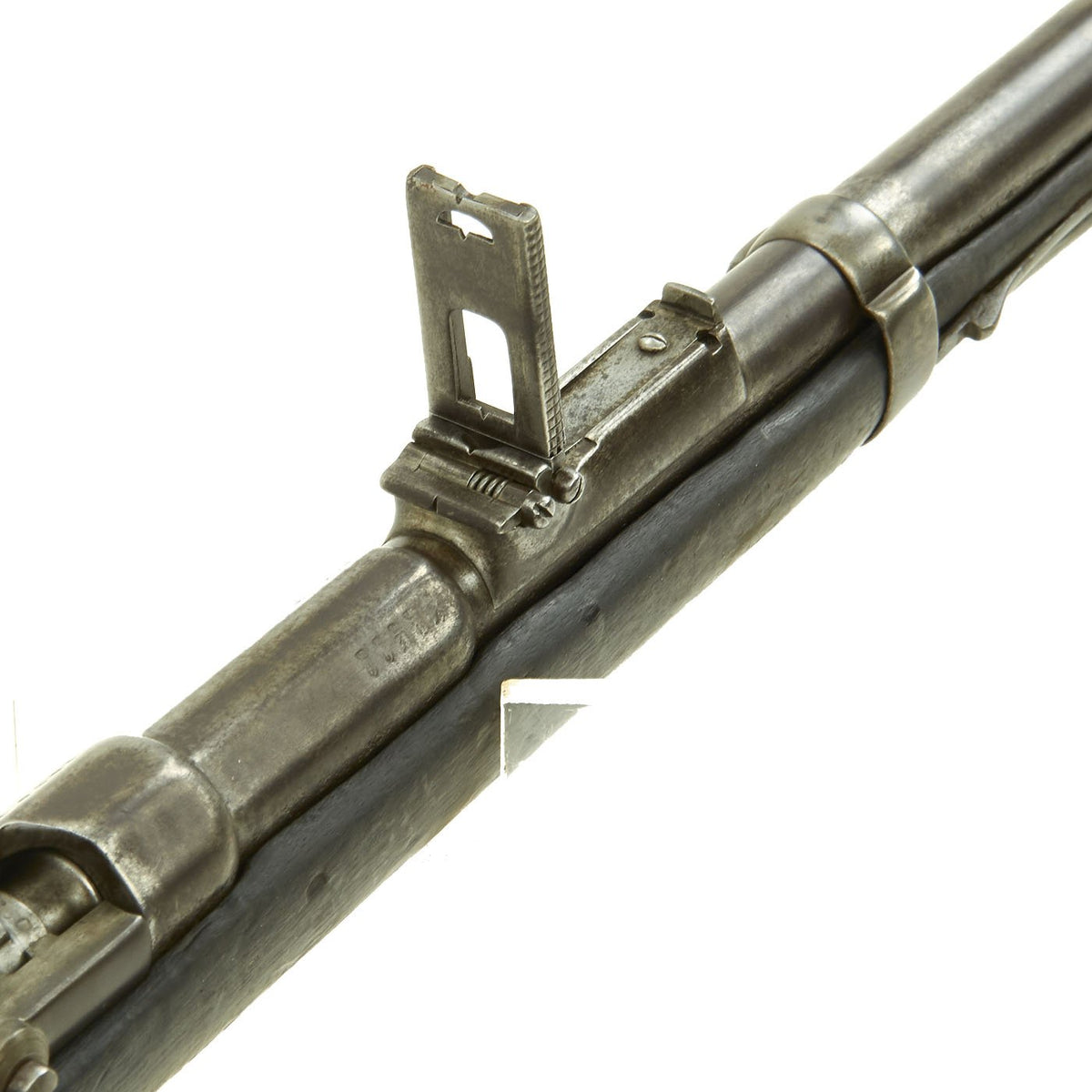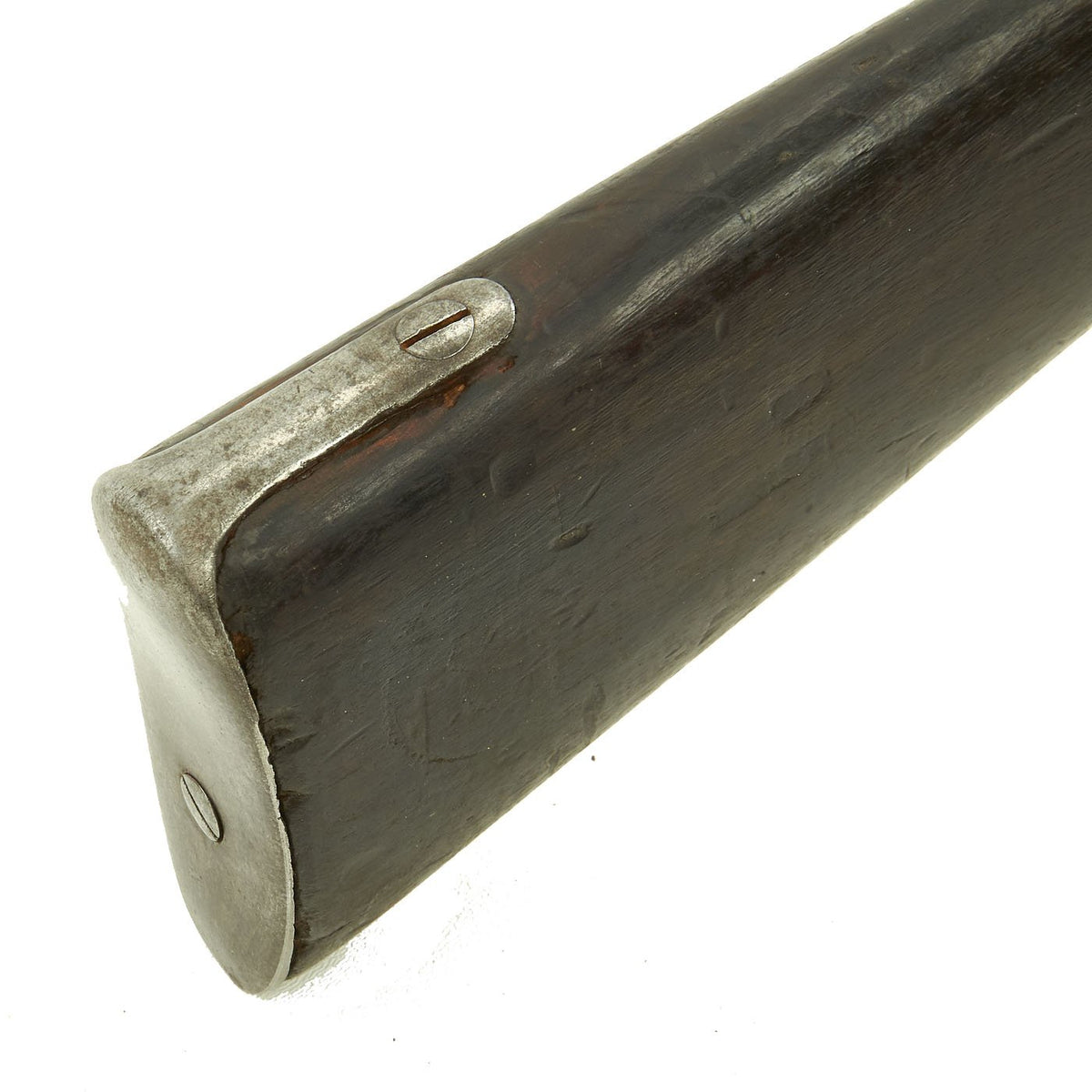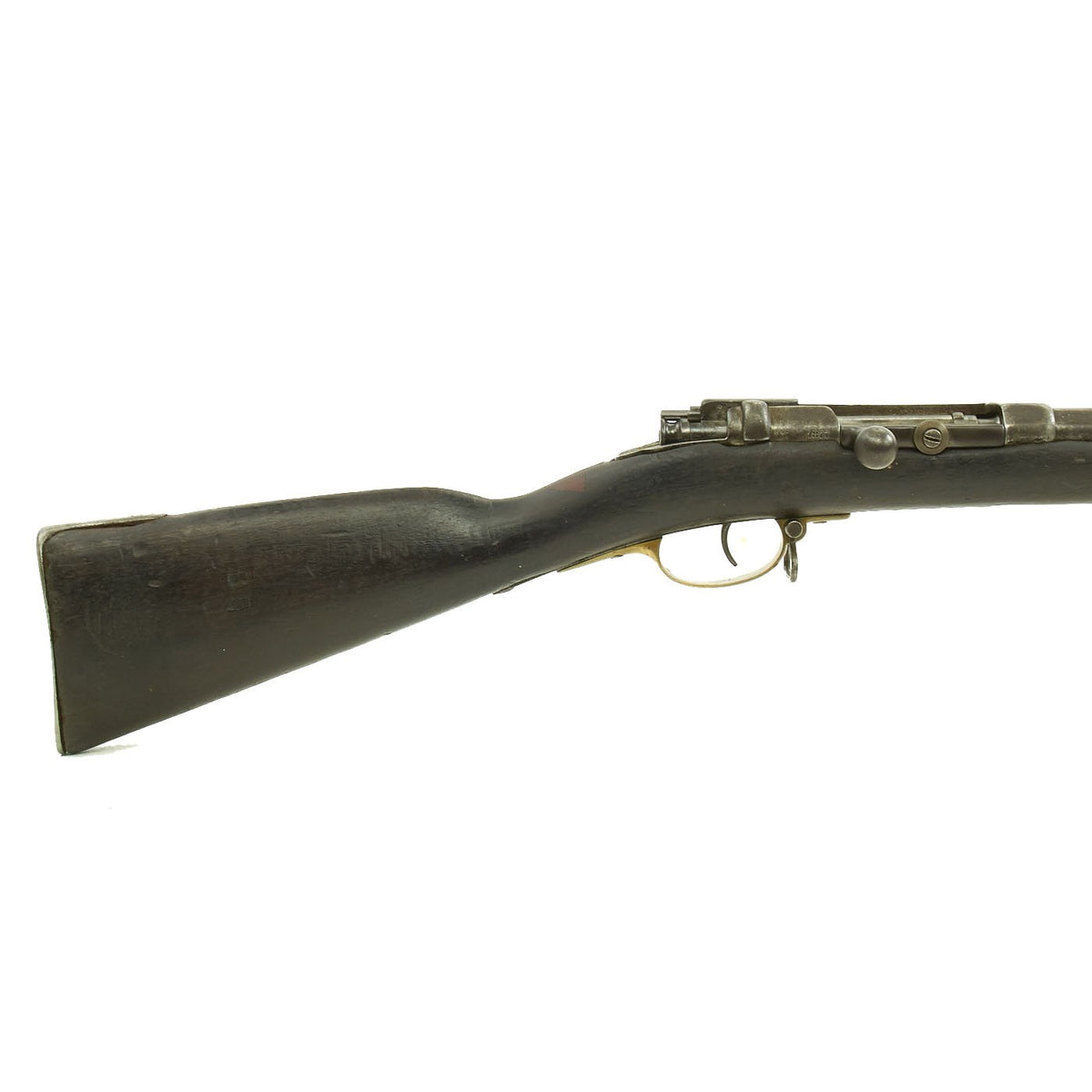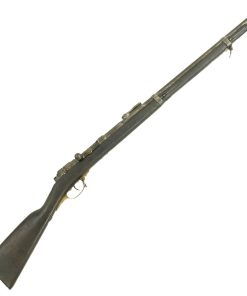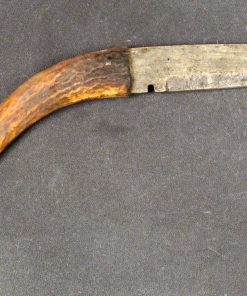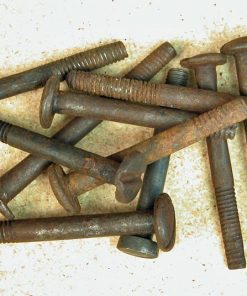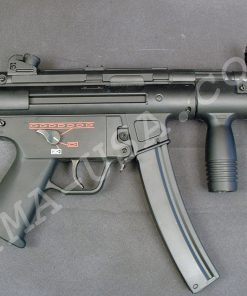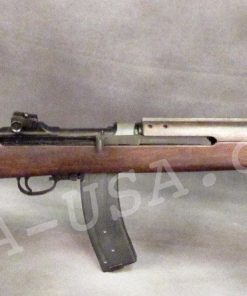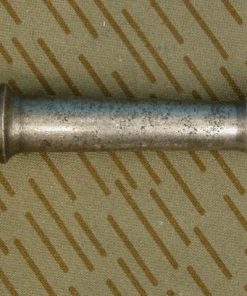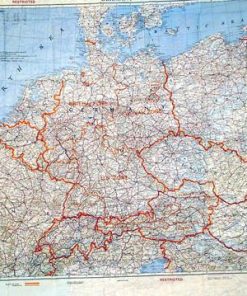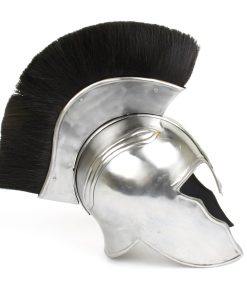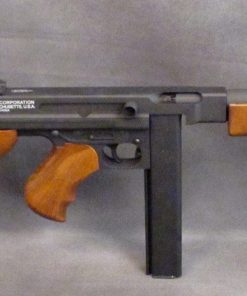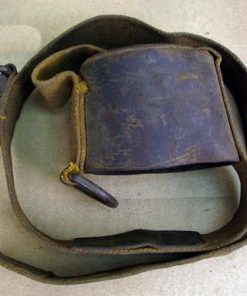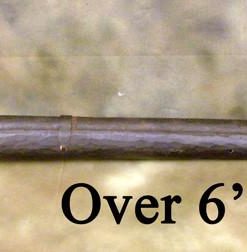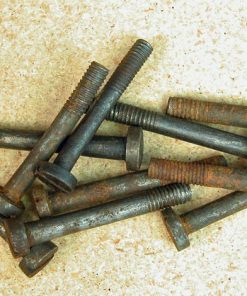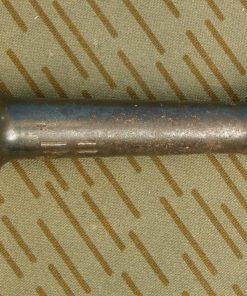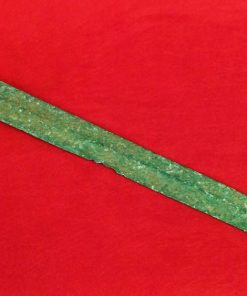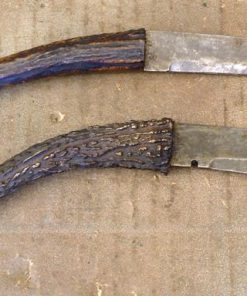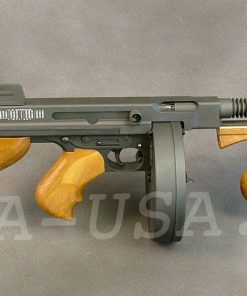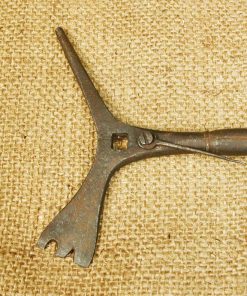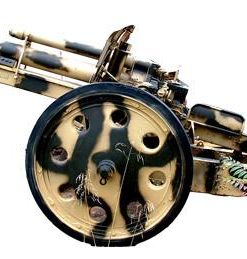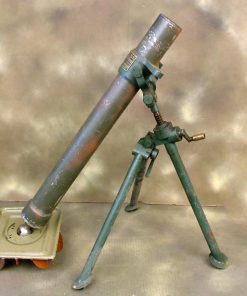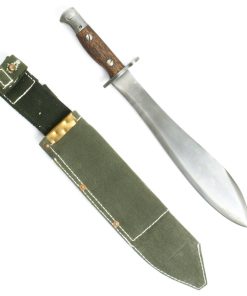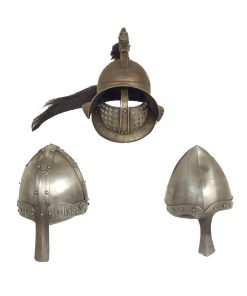Original German Mauser Model 1871 Short Rifle Exported to Siam Serial 1480E – dated 1877 Original Items
$ 795,00 $ 238,50
Original Item: Only One Available. This is a very nice example of the Mauser Model 1871 Infantry Rifle, manufactured in 1877. It bears serial number 1480E on the Barrel and Receiver, with a matching bolt. After service in Germany, it was exported to Siam, known today as Thailand. There it was shortened by about 8 inches, with the front fitting removed so it could no longer mount a bayonet. There are theories regarding this being due to the shorter height of the soldiers in Siam, or that the climate was better suited for shorter rifles.
The receiver is dated with 1877 and faintly marked I. G. Mod. 71 on the opposite side in German “Black Letter” type. This stands for Infanterie Gewehr (Infantry Rifle) Model 71. The other markings on the receiver and nocks form were either removed or worn off during long service.
The Rifle comes complete with cleaning rod and is in good condition overall. Interestingly, it has a brass trigger guard installed. The rifle still has both sling swivels intact. The exterior metal finish shows years of polishing, and is now all dull steel, with evidence of light peppering in the past.
The bore is in very good condition, with clear lands and grooves and a mostly bright finish, with some areas of oxidation and fouling. The rifle cycles and dry fires correctly, an has an intact firing pin, though the bolt face is worn. The stock is quite worn, showing years of service in a dam climate. It has been sanded down quite a bit.
This is a good example of the eventual fate of a lot of obsolete M1871 Mauser rifles, which were not upgraded to the new magazine standard. Ready to display!
History of the Mauser 1871
Adopted as the Gewehr 71 or Infanterie-Gewehr 71, or “Infantry Rifle 71 (“I.G.Mod.71” was stamped on the rifles themselves) was the first rifle model in a distinguished line designed and manufactured by Paul Mauser and Wilhelm Mauser of the Mauser company and later mass-produced at Spandau arsenal.
Paul Mauser developed his bolt-action rifle from 1866 to 1871. During 1870-71 trials with many different rifles took place, with the “M1869 Bavarian Werder” being the Mausers’ chief competitor. The Mauser was provisionally adopted on 2 December 1871, pending the development of an appropriate safety. With support from the government’s Spandau arsenal, the improvements to the safety mechanism were completed and the rifle was formally accepted on 14 February 1872 as Infantry Rifle Model 1871 by the German Empire excluding Bavaria. The action was not based on its predecessor, the Dreyse needle gun which had seen service during the Franco-Prussian War of 1870-71, and which was found to have a number of weaknesses.
The now well known Mauser “wing” type safety lever was developed for the Gewehr 71. The Gewehr 71 is a conventional looking bolt action chambered in 11mm using black powder cartridges. The action included only a bolt guide rib as its single locking lug, locking forward of the receiving bridge. The original design was a single-shot. The design was updated in 1884 with an 8-round tubular magazine designed by Alfred von Kropatschek, making this Germany’s first repeating rifle. This version was designated the Gewehr 1871/84. A version of this repeater was adopted by the Ottoman Empire. Designated the M1887, it differentiated from the M71/84 in that it had a side mounted cleaning rod, a second locking lug on the rear of the bolt, and it was in caliber 9.5×60mmR, which Paul Mauser touted as the most efficient (black powder) cartridge. In the early 20th century a few were converted to 7.65×53mm smokeless by the arsenal in Ankara.
Specifications-
Year of Manufacture: 1877
Caliber: 11x60mmR Mauser
Cartridge Type: Centerfire Cartridge
Barrel Length: 25 inches
Overall Length: 44 1/2 Inches
Action type: Bolt-Action
Feed System: Single Shot
NOTE: International orders of antique firearms MUST be shipped using UPS WW Services (courier). USPS Priority Mail international will not accept these.
Fast Shipping with Professional Packaging
Thanks to our longstanding association with UPS FedEx DHL, and other major international carriers, we are able to provide a range of shipping options. Our warehouse staff is expertly trained and will wrap your products according to our exact and precise specifications. Prior to shipping, your goods will be thoroughly examined and securely secured. We ship to thousands clients each day across multiple countries. This shows how we're dedicated to be the largest retailer on the internet. Warehouses and distribution centres can be located throughout Europe as well as the USA.
Note: Orders with more than one item will be assigned a processing date depending on the item.
Before shipping before shipping, we'll conduct a thorough inspection of the items you have ordered. Today, the majority of orders will be delivered within 48 hours. The delivery time will be between 3-7 days.
Returns
The stock is dynamic and we cannot completely manage it because multiple stakeholders are involved, including our factory and warehouse. So the actual stock may alter at any time. It's possible that you may not receive your order once the order has been made.
Our policy is valid for a period of 30 days. If you don't receive the product within 30 days, we are not able to issue a refund or an exchange.
You can only return an item if it is unused and in the same state as the day you received it. You must have the item in its original packaging.
Related products
Uncategorized
Uncategorized
Uncategorized
Uncategorized
Uncategorized
Uncategorized
Armoured Fighting Vehicles of the World: AFVs of World War One (Hardcover Book) New Made Items
Uncategorized
Uncategorized
Uncategorized
Uncategorized
Uncategorized
Uncategorized
Uncategorized
Uncategorized
Angolan Rebel 1970s era 60mm Inert Display Mortar from Angolan Civil War Original Items
Uncategorized
Uncategorized
Uncategorized
Uncategorized
Band of Brothers ORIGINAL GERMAN WWII Le. F.H. 18 10.5cm ARTILLERY PIECE Original Items
Uncategorized
